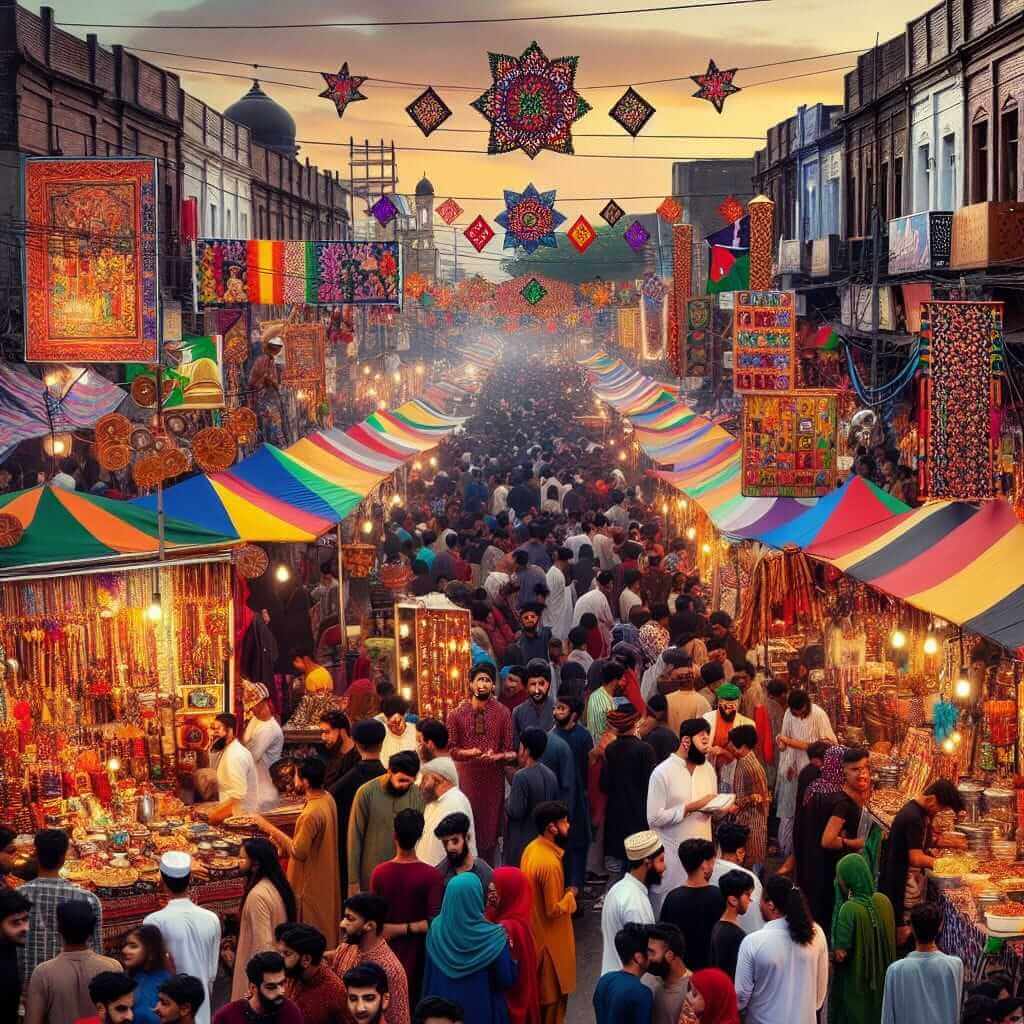The intersection of culture and economics is a fascinating area of study, and one that frequently surfaces in IELTS Writing Task 2. One such manifestation of this intersection is the question of “The impact of cultural festivals on local economies”. This topic, with its various permutations, has been known to appear in IELTS exams, prompting test-takers to delve into the multifaceted relationship between cultural celebrations and their economic implications.
Possible IELTS Writing Task 2 Questions:
- Many people believe that cultural festivals are important for local economies. Others, however, think they are mainly a way of preserving traditions. Discuss both views and give your own opinion.
- Cultural festivals are becoming increasingly commercialized. What are the advantages and disadvantages of this trend?
- Some people argue that governments should fund cultural festivals, while others believe that they should be funded privately. Discuss both views and give your opinion.
These questions have appeared with noticeable frequency in recent years, suggesting a continued interest from IELTS examiners in this topical area. Given the globalized world we live in and the increasing significance of tourism and cultural exchange, it’s highly probable that similar questions will continue to appear in future IELTS exams.
Analyzing a Sample IELTS Question
For the purpose of this analysis, let’s focus on the following question:
“Many people believe that cultural festivals are important for local economies. Others, however, think they are mainly a way of preserving traditions. Discuss both views and give your own opinion.”
Analysis: This question presents a classic “discuss both views” format, requiring you to present a balanced analysis of the two contrasting perspectives provided. You’ll need to:
- Acknowledge both sides: Explain why some people believe cultural festivals primarily benefit local economies, while others prioritize their role in cultural preservation.
- Provide evidence: Support each viewpoint with relevant examples and logical reasoning.
- State your opinion: Offer a clear and well-supported stance on the issue, indicating whether you lean more towards one side or find a middle ground.
Model Essay
Many people believe that cultural festivals are important for local economies. Others, however, think they are mainly a way of preserving traditions. Discuss both views and give your own opinion.
Cultural festivals, with their vibrant displays of heritage and tradition, have long been a subject of debate regarding their primary function. While some argue that their significance lies in bolstering local economies, others contend that they serve primarily as a means of safeguarding cultural heritage. This essay will delve into both perspectives before presenting my personal viewpoint.
On the one hand, the economic benefits of cultural festivals are undeniable. These events attract tourists from far and wide, injecting significant revenue into local businesses such as hotels, restaurants, and souvenir shops. The influx of visitors creates job opportunities, boosts sales, and contributes to the overall economic prosperity of the region. For instance, the annual Carnival in Rio de Janeiro draws millions of tourists, generating billions of dollars in revenue and providing livelihoods for countless Brazilians. In this sense, cultural festivals serve as powerful economic engines, driving growth and development.
On the other hand, the cultural significance of these festivals cannot be overlooked. They provide a platform for communities to come together, celebrate their shared heritage, and pass down traditions to younger generations. Festivals often showcase traditional music, dance, crafts, and cuisine, ensuring the continuation of cultural practices that might otherwise fade into obscurity. For example, the Holi festival in India, beyond its economic impact, strengthens social bonds and reinforces the cultural identity of its participants through the shared experience of color, music, and celebration.
In my opinion, cultural festivals represent a harmonious blend of economic opportunity and cultural preservation. While their ability to stimulate local economies is undeniable, their role in fostering cultural pride and continuity is equally crucial. Striking a balance between these two aspects is key to ensuring that these festivals remain both financially viable and culturally significant.
Word count: 277 words

Writing Tips for This Topic
- Use specific examples: Instead of making general statements, provide concrete examples of festivals and their impact (e.g., Diwali in India, Oktoberfest in Germany).
- Use linking words: Ensure a smooth flow of ideas by using transition words and phrases (e.g., “on the one hand,” “in contrast,” “moreover”).
- Vocabulary enrichment: Incorporate topic-specific vocabulary like “cultural heritage,” “economic stimulus,” “tourism revenue,” “preservation of traditions,” and “community cohesion.”
Difficult Vocabulary
- Bolster (verb): /ˈboʊlstər/ – to support or strengthen
- Influx (noun): /ˈɪnˌflʌks/ – an arrival or entry of large numbers of people or things
- Prosperity (noun): /prɒˈspɛrɪti/ – the state of being successful and having a lot of money
- Obscurity (noun): /əbˈskjʊrɪti/ – the state of being unknown, unimportant, or forgotten
- Cohesion (noun): /koʊˈhiːʒən/ – the act or state of uniting or sticking together
Conclusion
“The impact of cultural festivals on local economies” is a multifaceted topic that requires a nuanced understanding of both the economic and cultural implications. By familiarizing yourself with the structure outlined above, practicing your vocabulary, and brainstorming relevant examples, you’ll be well-equipped to tackle similar questions in your IELTS Writing Task 2. Remember to maintain a clear and logical structure, support your arguments with evidence, and present a balanced perspective to achieve a high band score.
Related Topics to Explore:
- The influence of cultural heritage on tourism development
- The influence of global events on local economies
- The role of cultural festivals in promoting tourism